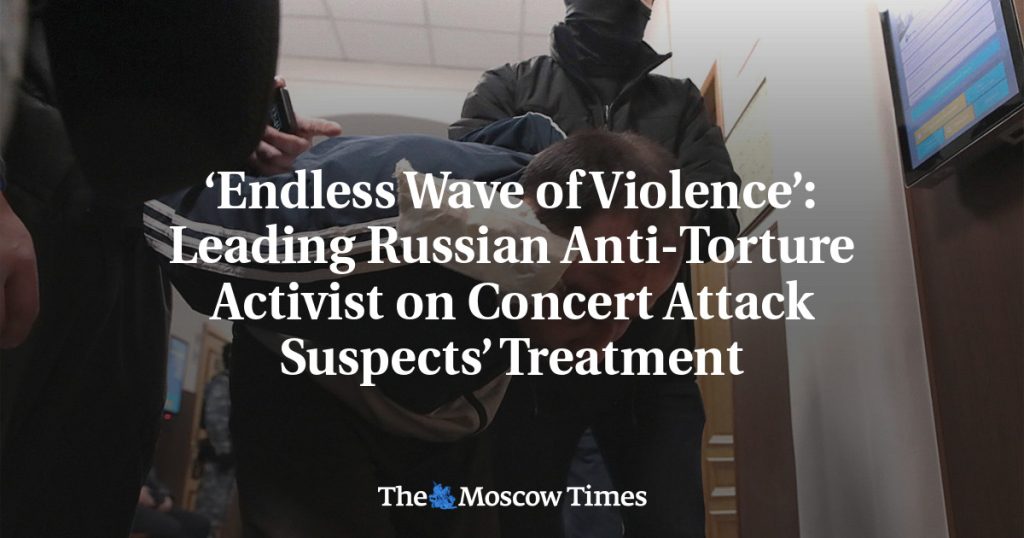Four men accused of participating in a deadly attack on Crocus City Hall in Moscow appeared in court with visible bruises, cuts, and other injuries, sparking concerns of torture by law enforcement. Unverified graphic footage of the suspects’ interrogations on social media further fueled these suspicions. Muhammadsobir Fayzov, one of the suspects, was unconscious and wheeled into court on a gurney, while others showed signs of physical abuse, such as a missing ear or torture with an electric device.
Despite the seriousness of the charges against the suspects, human rights activists have warned against the use of violence in handling them. The Moscow Times interviewed Olga Sadovskaya from The Crew Against Torture, a human rights NGO that monitors cases of torture in Russia, to discuss the treatment of the suspects. Sadovskaya condemned the use of torture, emphasizing that it is illegal in Russia and violates the Criminal Code. She described the incidents captured in the videos and photos as clear cases of torture, constituting a criminal offense.
The distribution of footage showing the suspects’ injuries and mistreatment is highly unusual at the national level in Russia. Sadovskaya highlighted that normalization of such violence could have two key messages: one to potential criminals, warning them of severe treatment, and another to the public, showing swift retribution. Public tolerance for torture in Russia varies based on the nature of the crime, with society often justifying it in cases of terrorism, crimes against children, or serial killers. Since the start of the war with Ukraine in 2022, there has been a concerning increase in tolerance for violence and brutality.
The normalization of torture poses serious risks to society, indicating acceptance and lack of boundaries for such actions. Public outrage demonstrated by threats towards a barbershop where one of the suspects worked is a direct consequence of this normalization. Human rights defenders aim to educate the public on the inefficacy and inhumanity of torture, emphasizing that it does not yield accurate information and only perpetuates a cycle of violence. By addressing public opinion from a humanistic standpoint and highlighting the negative repercussions of torture, advocates seek to prevent further harm and promote justice through lawful means.


